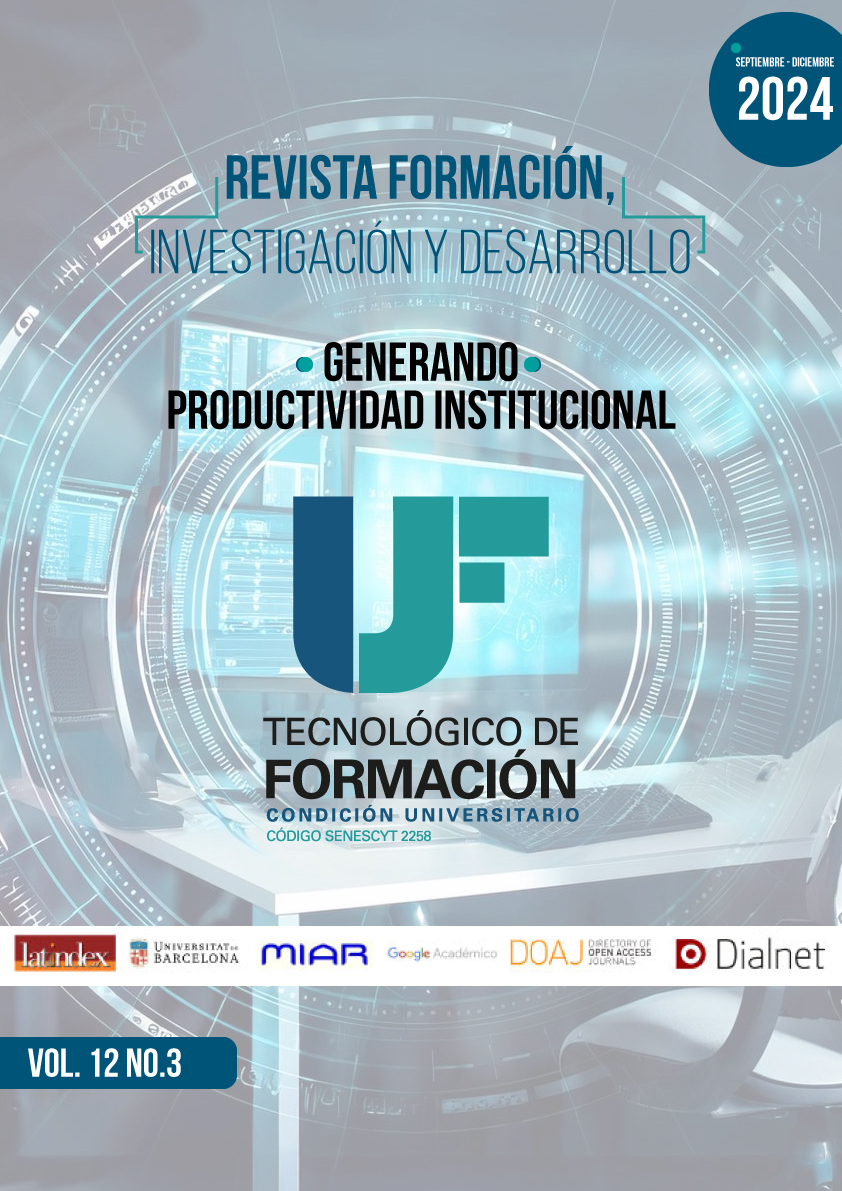Teaching practices and innovation from ICT for university admission.
Main Article Content
Abstract
The use of ICT in the training of Baccalaureate students is an integrative and mandatory objective from the curriculum for teachers. So preparation in the use of digital tools opens a space for students' independent search for knowledge and the development of skills with the use of technology. So the objective is determined: to implement a training course for the use of virtual environments in the pedagogical and didactic process of Baccalaureate subjects. The methods applied such as interviews with managers and observation of classes allowed us to corroborate that there are shortcomings in teachers with the systematic use of technology, it is also corroborated that the conditions created from the technological infrastructure that make it possible to interact with it are not always there. The training of teachers as part of the result of the research allowed them to receive a face-to-face course where they were shown how, through phones and tablets, they could promote new modes of action in the use of ICT for the assimilation of the contents of the curriculum and development for higher educational levels.
Article Details
Section

This work is licensed under a Creative Commons Attribution-NonCommercial-ShareAlike 4.0 International License.
Todos los artículos publicados en la Revista de Investigación, Formación y Desarrollo: Generando Productividad Institucional (RIF) se distribuyen bajo la Licencia Creative Commons Atribución-NoComercial-CompartirIgual 4.0 Internacional (CC BY-NC-SA 4.0), que permite compartir y adaptar el contenido, siempre que se otorgue el debido reconocimiento a la autoría, no se utilice con fines comerciales y se mantenga la misma licencia.
Los autores conservan sus derechos de autor y otorgan a la revista el derecho de primera publicación. Esto permite a terceros compartir y adaptar el contenido con fines no comerciales, siempre que se atribuya correctamente la obra original y se mantenga la misma licencia.
Para más información sobre la licencia, consulte: https://creativecommons.org/licenses/by-nc-sa/4.0/
How to Cite
References
Atencio Huggins, Daniel, D, Silva J. Palomares H. (2016). La investigación Social y el Método investigación acción participativa. Metodología de Investigación Científica con una perspectiva socio comunitaria. P.54-84. ttps://www.researchgate.net/publication/318403539
Cavalcante Gabriel Celestino; Jesús Alejandro Díaz Toro. (2022). Fundamentos pedagógicos de un ambiente virtual de aprendizaje para el desarrollo del talento. Colombia. Departamento de Educación, Pontificia Universidad Javeriana. Trabajo Final de graduación.
Cevallos, M., Pazmiño, M., y López, M. (2022). Las TIC en la educación general y el bachillerato: un estudio de caso en Ecuador. Revista de Educación, Vol. 2. P.391, 396. ISSN 2932-2675-3- 2432
Estrada, J. M., & García, M. I. B. (2021). Formación educativa en y desde las tecnologías de información y comunicación (TIC) en educación secundaria: el reto de hoy. Redalyc.org. https://www.redalyc.org/articulo.oa?id=44066178017
Togra, D. S. D., Moreno, J. M. S., & Herrera, L. D. H. (2021). herramientas web 2.0 en el desarrollo de habilidades lectoras. Horizontes Revista de Investigación En Ciencias de la Educación, 5(19), 668-676. https://doi.org/10.33996/revistahorizontes.v5i19.227
Díaz, K. I., Fierro, E. R. y Muñoz, M. A. (2018). Empleo de los entornos virtuales de aprendizaje en la formación de profesionales de la educación Una experiencia cubana. Disponible https://www.researchgate.net/publication/328107562
Mata Solis, Luis Diego: (2019). El enfoque de investigación: la naturaleza de su estudio. México. Disponible: http:www.enfoquedeinvestigacion/net.mx
Miranda, C. J. L., Herrera, D. G. G., Salazar, A. Z. C., & Álvarez, J. C. E. (2020). Uso alternativo de las TIC en Educación Básica Elemental para desarrollar la lectoescritura. Dialnet. https://dialnet.unirioja.es/servlet/articulo?codigo=7610738
Robaina Santander, Mireley et al: (2022). Utilización de los entornos virtuales de aprendizaje en la Ingienería en Bioinformática. Revista Cubana de Ciencias Informáticas. Vol. 15 # 4. La Habana. Septiembre-diciembre. ISSN 2227-1899
Roncal, L. E. P., Del Pilar Gaona Portal, M., Acuña, M. L. L., & Linares, M. V. B. (2023). Las tecnologías de la información y la comunicación (TIC) en educación secundaria: Una revisión sistemática. Dialnet. https://dialnet.unirioja.es/servlet/articulo?codigo=9428316.

